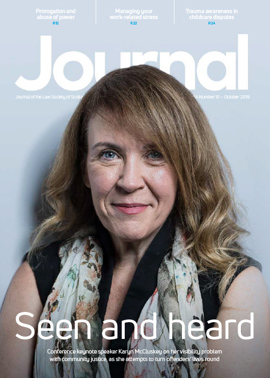A dangerous approach to borders
In a recent statement, Home Secretary Priti Patel announced that the UK Government would be dedicating more money to policing on the French border in an attempt to stop migrants making the dangerous journey across the Channel. This approach was the outcome of a meeting between the Home Secretary and her French counterpart Christophe Castaner.
Patel claimed that the UK would “not let the ruthless gangs of criminal people smugglers continue to put lives in danger”, but the move to focus on policing to prevent crossings is an issue which concerns charitable groups such as Care4Calais, a group supporting migrants in Northern France. Before the meeting, charities urged the Home Secretary to prioritise the dignity of those seeking asylum and focus on access to safe, legal routes of applying for asylum.
Though the current plans aim to discourage criminal gangs from profiting on the trafficking of vulnerable migrants, they do little to address the reality of the situation for hundreds of migrants sleeping rough in Northern France. Making the dangerous journey which many migrants already take more difficult could only lead to smugglers putting more people in riskier situations.
The situation for migrants at the border
More people have attempted the crossing on small boats or dinghies in the first half of 2019 than throughout the whole of 2018, showing a rise in the number of migrants willing to make the journey and the number of crossings being organised. With many migrants living on the streets of Calais and other areas of France, it’s clear that desperation to reach the perceived safety of the UK is rising.
The situation in France has also deteriorated in the last few years following consistent closure of migrant camps and a lack of access to legitimate routes of entry. For both Governments to tackle the root issue facing this vulnerable group, there will need to be a humanitarian approach to processing their applications. Some groups like the Kent Refugee Action Network and Joint Council for the Welfare of Immigrants also believe that the UK should be open to processing more in the UK.
Though many would argue that, once in the country, removal is much harder, the alternative is allowing many people with legitimate asylum claims to live in squalor in migrant camps in northern France. More than just increased surveillance, this issue needs to be dealt with holistically.
The Dublin Regulation and post-Brexit plans
Every person has the legal right to apply for asylum in another country and no claim is a “bogus claim”, even when there are no grounds for protection. As part of the Dublin Regulation, an aspect of EU law pertaining to immigration, the UK has a legal obligation to assess all asylum claims made in the UK. However, current Government plans are to end the UK’s participation in the Dublin Regulation in the event of a no-deal Brexit, which could remove another safe, legal route for asylum seekers.
The Dublin Regulation includes laws on family reunification in which the children and spouses of those already living in the UK can reunite under the protection of the British Government. Plans to remove the Dublin Regulation from UK law would mean that no new applications for family reunification would be processed, leading countless more into dangerous situations to be with family again, away from the persecution faced at home.
The Government cannot claim to be working in the interests of vulnerable migrants and at the same time make safe, legitimate access to the UK even more difficult.
Dubs amendment
Separate from the Dublin Regulation, the Dubs amendment was introduced in 2016. It aimed to bring unaccompanied children to the UK from other parts of Europe, including France and Greece. The scheme was intended to bring 480 unaccompanied children over from migrant camps, but only around 250 children have been allowed in since 2016.
Additionally, the Court of Appeal found last year that the Government had acted unlawfully towards child migrants who had applied under the Dubs scheme. By failing to give applicants proper grounds for refusal and official written decisions, many were unable to exercise their right to appeal their decision, meaning countless eligible children were unable to enter the UK safely.
Though this was the work of the previous administration under Theresa May, it shows that the Government has failed to keep its promises to vulnerable migrants in the past and should not be easily forgotten as the new Government under Boris Johnson sets out its immigration plans.
Homelessness among Scottish refugees
Though the planned eviction of almost 300 refugees by housing provider Serco has been halted due to the contract transfer to Mears, homelessness among those granted refugee status in Scotland is still high, with almost 15% of homeless applications coming from newly granted refugees. Refugees are most likely to become homeless in the 28-day move-on period after a successful status claim, as many are systemically slipping through the cracks.
With practices occurring across the UK that fail to protect the human rights of asylum claimants and refugees, it is difficult to believe that the Government has the welfare of vulnerable migrants as its priority.
Damon Culbert, Axis Solicitors, immigration and human rights lawyers in Manchester
Regulars
Features
Briefings
- Law fair for the high street
- It's time for home truths
- No hope at age 16?
- Drug driving
- Licensing and the public health objective
- Constructing the new framework
- Scottish Solicitors' Disipline Tribunal
- Calling-up: the questions continue
- Reverse charge: don't sit back
- The anomaly that is immigration bail






